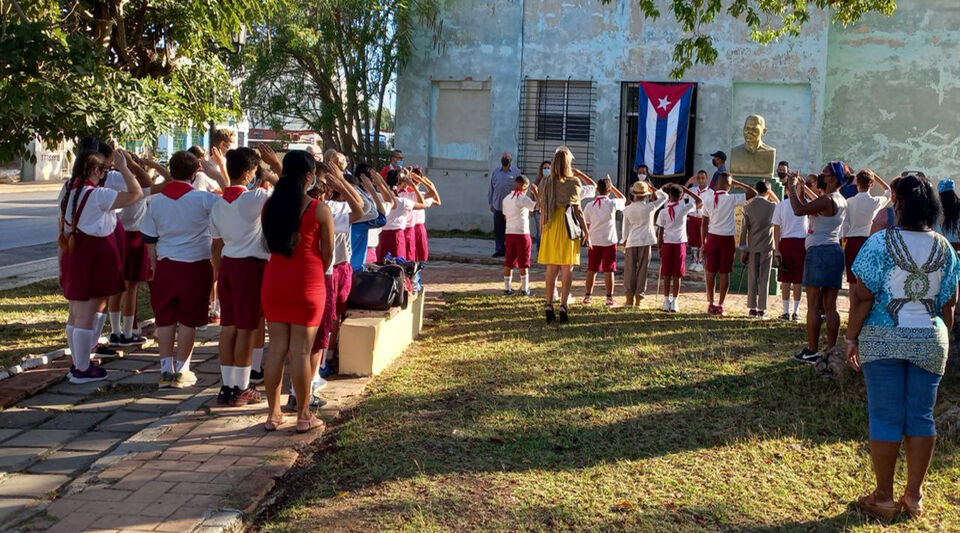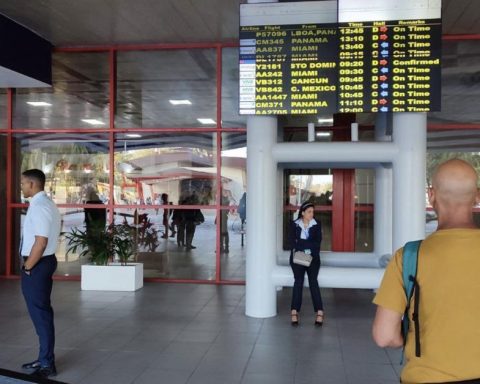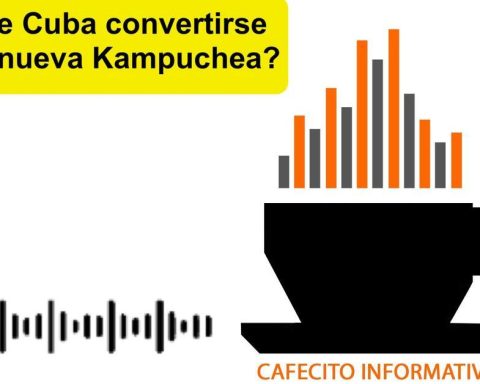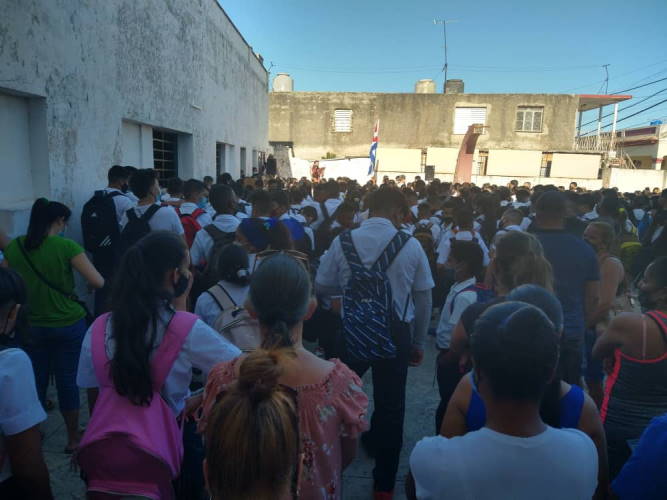A kiss at the door of the house and the look of the mother following him until he turned the corner was part of Jeancarlos’ routine this Monday. The eleven-year-old boy resumed this September 5 a school year in which, unlike a few months ago, he will no longer be able to count on even a piece of bread for snack.
Since classes ceased to make way for summer vacations, much has changed on the island. Blackouts dragged on, the Cuban peso sank against foreign exchange, and wheat flour became an increasingly scarce product. The cookies and breads that used to underpin the students’ snacks have practically disappeared.
“So that he can take a bread with something to school, someone in the house has to stop eating his,” says Jeancarlos’s mother, alluding to the product of rationing. But the sixth grader is not the only student in the family. “The girl started in first grade and I gave my bread to her because she’s smaller and doesn’t understand that she doesn’t have a snack,” she explains.
Days before restarting the school year, the woman was inquiring about possible solutions. “A small package of cookies costs you at least 100 pesos and there is nothing to put on them, so I don’t even count that option because it doesn’t solve the problem,” she explains to 14ymedio. An informal trader sold him “an extract of soft drink that guarantees that at least he does not take only water to school”.
Recently, the young Trilce Denis launched a bitter diatribe against the ruler Miguel Díaz-Canel through a video posted on his Facebook account. “Now I want to know, when school starts, what snack is going to be given to the children, (…) they already have me nervous,” the woman questioned.
“A small package of cookies costs you at least 100 pesos and there is nothing to put on them, so I don’t even count that option because it doesn’t solve the problem,” explains a mother.
Denis lamented that even when she was able to arrange a snack for her son, he would have to eat it alongside other children who could not bring any food. The concern is shared by many parents who fear an increase in social inequalities expressed in the economic inability of families to offer bread to their children.
The contrasts are now perceived not only in the quality of the shoes or the backpack in which the students carry their books, but rather the mere fact of having some sweet cookies, a sandwich or a piece of bread marks belonging to a certain social class that they have. access to stores in freely convertible currency or receive remittances from abroad.
Ulises, 43, landed this Saturday in Havana from Miami. After arriving in the United States six years ago, this is the third time that he has returned to the island to visit his sister and two school-age nephews. “Most of the suitcases I brought full of food,” he tells this newspaper. “Cans of all kinds, flour, cookies and bread,” he lists.
“I brought them everything they need for next month’s snack, then we’ll see how we manage so they can take something to eat to school, but for now at least they have the start of the school year figured out.” Powder of instant soft drinks, powdered milk and some jams were also part of the “family ransom”, as Ulysses called his luggage.
“With the flour that I brought, my sister has already started to make her own bread because no one can eat the bread from the notebook, acid and hard.” But the first days of the course are not the hardest test for families with children or adolescents who go to school. “Normally this first week of September everything is more relaxed. The worst will come later,” admits the émigré.
Ads abound these days on classified sites promising “packages of biscuits ideal for school snacks” or “assorted jams in separate envelopes, perfect to take to school.” But the prices deter many potential buyers. A box with four sweet cookies with “chocolate chips” in 200 pesos, gives the measure of inflation.
“It’s not just about putting something in your mouth, but at this age teenagers are very sensitive,” lamented a father outside the high school on Monday.
“It’s not just about putting something in your mouth, but adolescents at this age are very sensitive,” lamented a father on Monday outside the Baraguá protest high school in Central Havana. “My son tells me that he doesn’t want to bring anything because he feels sorry for his friends who don’t have any, but that means all morning without eating anything, that can’t be good.”
On the outskirts of the educational center, and while the students lined up for the first morning this September, some parents remembered that at the beginning of this century “a strong snack” was implemented for high school students. “The government did not want the children to be wandering the streets and instead of going out at lunchtime they were given bread with something and yogurt,” recalled a mother.
That school snack, which began to be distributed in 2003, included a glass of soy yogurt and a bread that could contain sausage, botifarra, cheese, ham or croquette. The offer sought that the students did not have to go home at lunchtime, from which many did not return. But the initiative, supported by the economic comfort that Venezuelan oil allowed, barely survived a decade.
“I’m one of those teenagers who would throw bread over the school fence or we’d start playing sausage toss,” commented one of the parents on the outskirts of the Centro Habana high school. “Who was going to tell me that now I was going to be here dreaming that at least my nephew had something like that?” Times have changed and now snacks are a luxury that few can afford.
________________________
Collaborate with our work:
The team of 14ymedio is committed to doing serious journalism that reflects the reality of deep Cuba. Thank you for joining us on this long road. We invite you to continue supporting us, but this time becoming a member of our journal. Together we can continue transforming journalism in Cuba.














